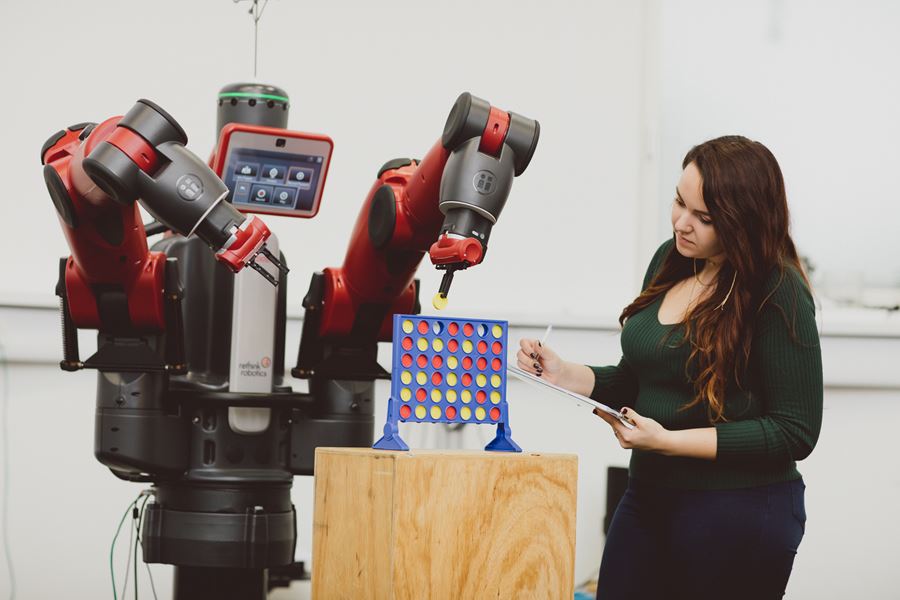In this talk, I will present an overview of my research to enable haptics-based adaptation techniques toward building robots that work in close contact with humans. In the first part of my talk, I will focus on the idea that the communication between a human and a robot would benefit from a decision making process, where the robot dynamically adjusts its control level during the task based on the intentions of the human. I will discuss the benefits of using a force-triggered dynamic role allocation mechanism for human-robot systems to negotiate through force information to switch between leader and follower roles.
In the second part, I will discuss how to distinguish between interaction patterns that we encountered during a haptics-enabled human-human cooperation scenario. I will talk about a novel interaction taxonomy, and present the usefulness of force-related information to describe interaction characteristics.
Finally, I will present a shared control methodology that adopts a user modelling approach to model the assistant’s behavior when aiding a wheelchair user when driving. A triadic learning-assistance-by- demonstration (LAbD) technique, in which an assistive robot(i.e. the powered wheelchair) models its assistance function by observing the demonstrations given by a remote human assistant will be discussed. The talk will end with a short discussion of some future research directions.

